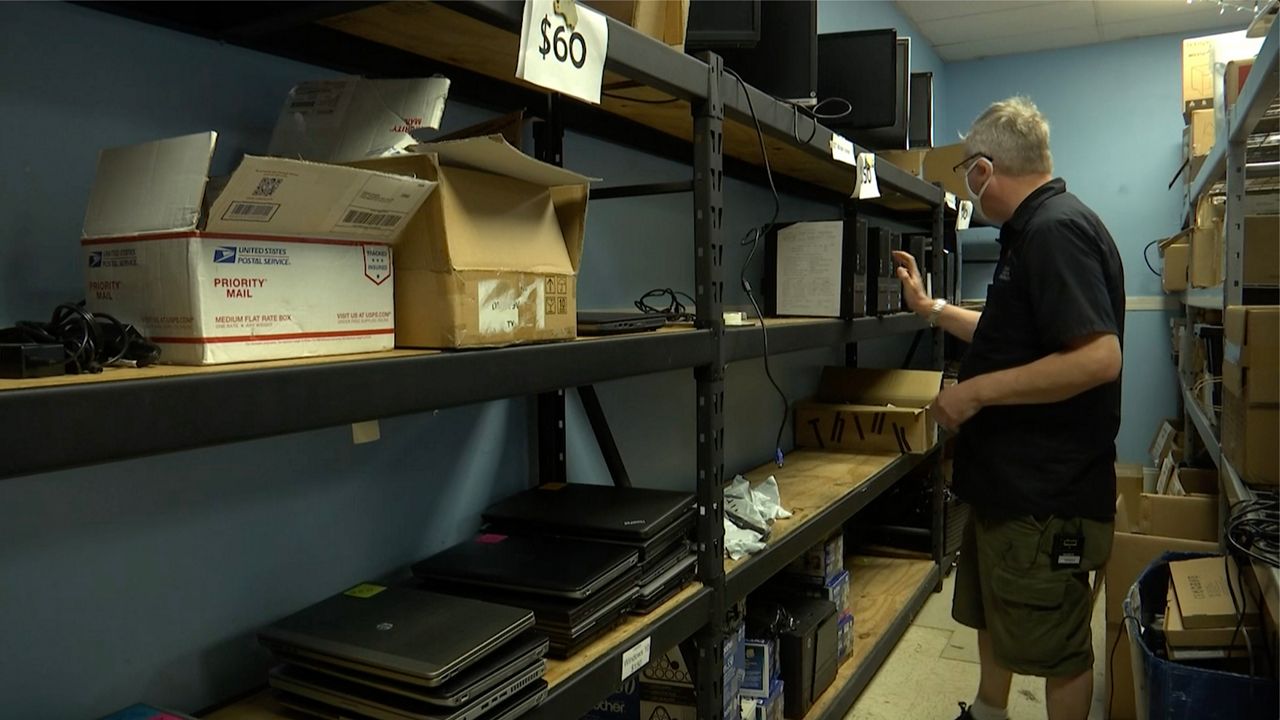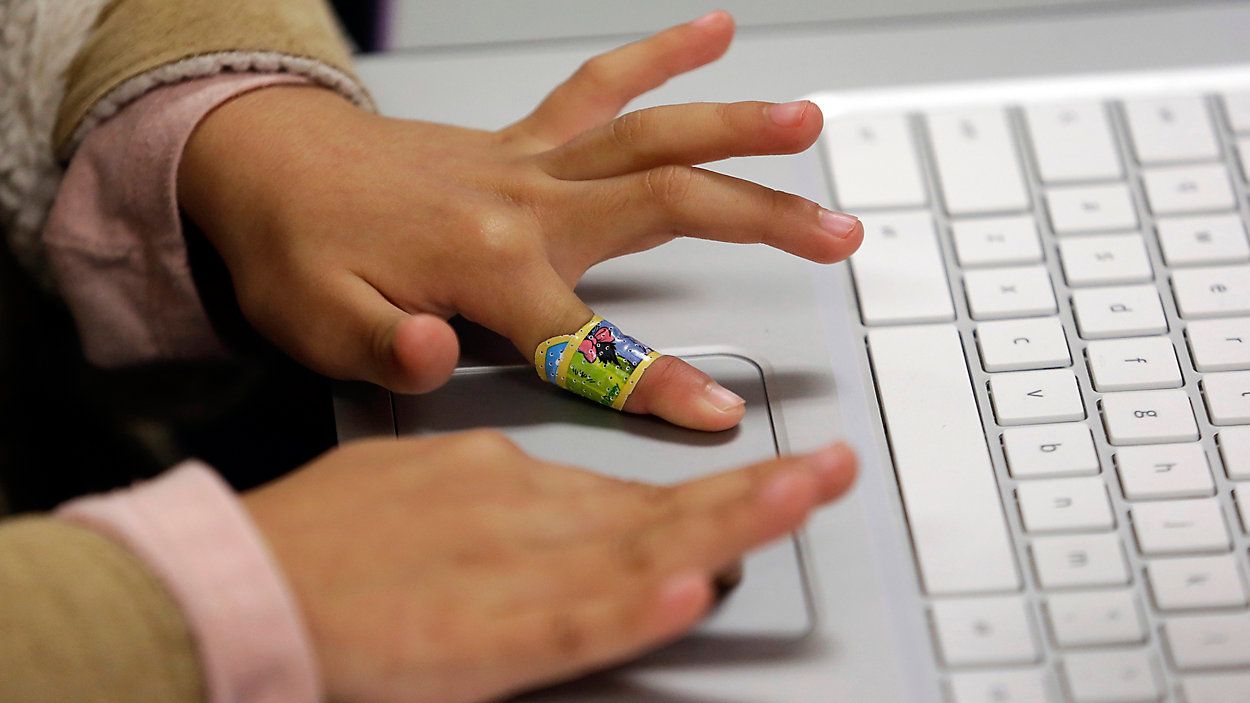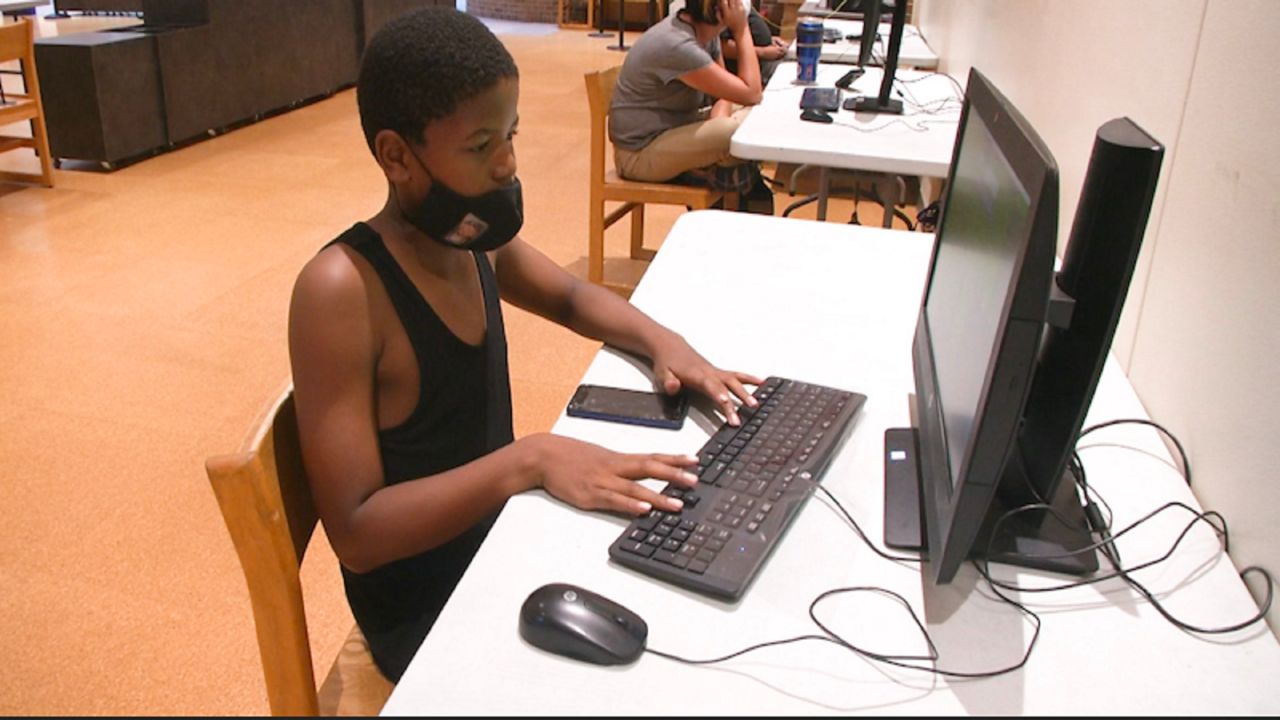Photo courtesy of Freestore Foodbank
CINCINNATI, Ohio — Labor Day weekend typically brings thousands to the banks of the Ohio River for Cincinnati's Riverfest, and the Freestore Foodbank's Rubber Duck Regatta gets things started.
Due to COVID-19, the festival was canceled and the regatta went virtual.
Mark Bodnar, the chair of the regatta, said the event takes nearly the entire year to plan and put together. It serves as the foodbank's largest fundraiser.
"This is a big day," he said. "This is sort of our Super Bowl."
It all culminates in one dramatic moment, as thousands of rubber ducks drop from a trailer into the Ohio River.
“We’re missing that this year," Bodnar said. "We’re missing that experience, but we’re grateful for the outpouring of support from the Cincinnati community.”
For the last six years, the regatta has raised more than a million dollars, so Bodnar said scrapping the event entirely was never an option. But they couldn't responsibly host an event that would bring out crowds of spectators.
“Instead of having that great visual of dropping ducks, 200,000 ducks out of a trailer at 3:00 prior to Riverfest, we’ll be doing it here at our administrative offices on Central Parkway and then reaching out and calling the winners,” he said.
Countless nonprofits have juggled that decision this year with community need at an all-time-high, but conventional fundraising efforts off the table for the foreseeable future.
The Juvenile Diabetes Research Foundation of Southwest Ohio was one of the first in the Greater Cincinnati area to make a snap decision to convert its flagship fundraiser into an online event. President Melissa Newman said they had about a month and a half to prepare.
“We have one of the biggest galas in the city. We typically hold it every Saturday before Mother’s Day weekend in May and COVID hit right before,”she said. “We’ve never done a virtual event, so we had six to eight weeks to pull off a pretty big fundraising event in a virtual space.”
Newman said JDRF opted for at-home party kits, online cocktail classes, and delivered meals.
“We tried to bring joy to the event," she said. "At that time, COVID was new and so people were just starting to get those early days of being stir crazy.”
Wonda Winkler, executive vice president at the Brighton Center, said her staff had to make a similar decision back in May and are still following that model for their "Wine Over Water" fundraiser next weekend.
“I think using networks and social media is really a good way to deal with people that wouldn’t necessarily have thought about coming to just our gala, for example, but would want to come to a fun event outside like Wine Over Water,” she said.
Unfortunately, Winkler and Newman said they've seen a slight decline in participation of their virtual events, but Newman said the net profit hasn't been too far off.
"These at-home versions — these virtual versions — they’re a lot more cost-effective than doing the in-person events that we’ve traditionally done,” she said.
Bodnar said the virtual regatta's found success as well since it moved online.
“We have sold record numbers of ducks,” he said.
Bodnar credits the fundraising team fast-tracking the digital donation portal and the marketing team's efforts to spread the word. Still, he said the food bank didn't do this alone.
"The community stepped up and we’re going to feed more children this year, which is our ultimate goal," he said.
All of the nonprofits agreed they're eager to get back to in-person fundraising events but implementing strategies to maintain social distancing during the pandemic has taught them a number of ideas they hope to keep up even after the pandemic.









